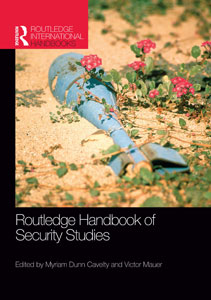
Many members of our extensive partner network maintain excellent and informative blogs, often specific to that partner’s area of focus. Here are some of them (in no particular order):
- Overseas Development Institute (ODI) blog– a portal to one of Britain’s leading think tanks and the work of its experts
- The Atlantic Council’s ‘New Atlanticist’ blog featuring policy analysis and commentary from a leading US think tank on US and transatlantic issues
- OurKingdom, openDemocracy’s blog focusing on ‘power and liberty’ in Britain
- The New America Foundation’s ‘American Strategist’ blog on US strategy and foreign policy (just one of their excellent blogs)
- ‘The Interpreter’, Lowy Institute’s international policy-focused blog, an Australian partner organization
- ‘Up Front’ by the Brookings Institution providing daily commentary from Brookings experts
- The ‘ISS Today’ blog by the Institute for Security Studies focused on African issues (to be found on the left side of the page)
- The Finnish Institute of International Affairs blog providing commentary and opinion pieces by the Institute’s staff
More to follow in the new year. We hope you found these recommendations useful!




